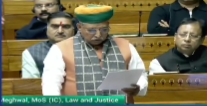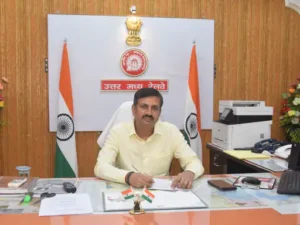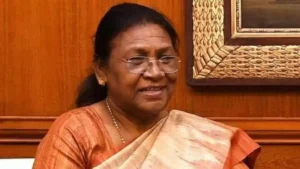Union Law Minister to Introduce ‘One Nation, One Election’ Bill in Lok Sabha Today

New Delhi [India], December 17: Union Law and Justice Minister Arjun Ram Meghwal is set to introduce the Constitution (One Hundred and Twenty-Ninth Amendment) Bill, 2024, in the Lok Sabha today, marking a key step towards implementing the ‘One Nation, One Election’ initiative. The bill seeks to enable simultaneous elections for the Lok Sabha and state assemblies nationwide, a move aimed at streamlining the electoral process.
In addition to the main bill, the law minister is expected to introduce amendments to several laws, including the Government of Union Territories Act, 1963, the Government of National Capital Territory of Delhi Act, 1991, and the Jammu and Kashmir Reorganisation Act, 2019. These proposed amendments aim to align assembly elections in Delhi, Jammu and Kashmir, and Puducherry with the plan for concurrent elections.
The Union Cabinet had already approved the recommendations of a High-Level Committee on Simultaneous Elections in September, chaired by former President Ram Nath Kovind. The committee’s report suggested a phased approach to implementing simultaneous elections: the first phase would involve synchronizing the Lok Sabha and state assembly elections, while the second phase would see local body elections (panchayats and municipal elections) held within 100 days of the general elections. The committee also recommended adopting a common electoral roll for all elections.
The bill has sparked a significant political debate. While parties in the BJP-led NDA alliance have supported the proposal, arguing that it will save time, reduce election-related costs, and streamline the electoral process, opposition parties, particularly from the INDIA bloc, have voiced strong opposition.
Senior Congress leader and Rajya Sabha MP Digvijaya Singh raised concerns over the practicality of the proposal. He questioned what would happen if a state government falls within a short period, such as six months after the elections. He argued that the state might be left without a government for the remainder of the term, which he deemed impractical in the current political environment. He noted that state governments have historically not completed their five-year terms, with some falling within 2.5 to 3 years.
Congress MP Jairam Ramesh also expressed strong opposition, demanding that the bill be referred to a Joint Parliamentary Committee (JPC) for further discussions. He argued that the bill could undermine democracy, a position previously articulated by party president Mallikarjun Kharge in a letter to the former President Ram Nath Kovind’s committee on ‘One Nation, One Election.’
On December 12, the Union Cabinet approved the bill, clearing the way for its introduction in Parliament. Prime Minister Narendra Modi hailed the decision as a crucial step in strengthening India’s democracy. The introduction of the bill is expected to set the stage for further debates and discussions in the coming days.




